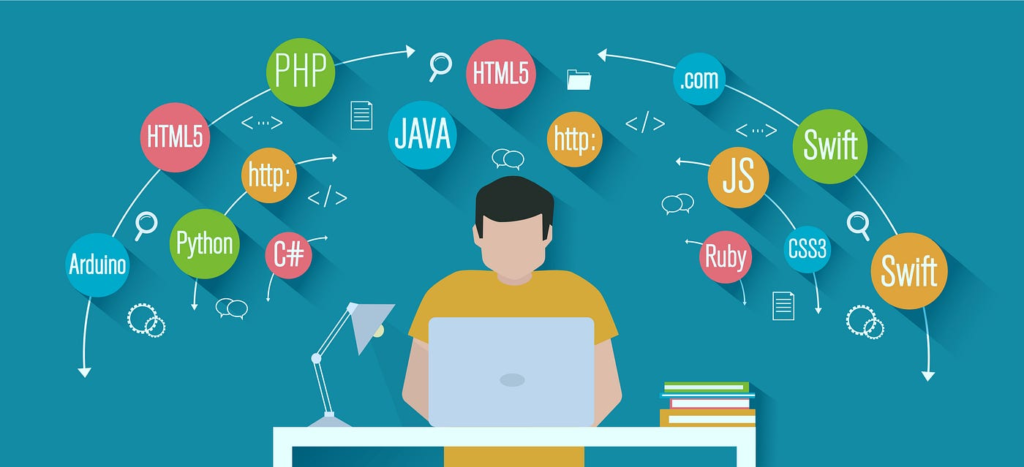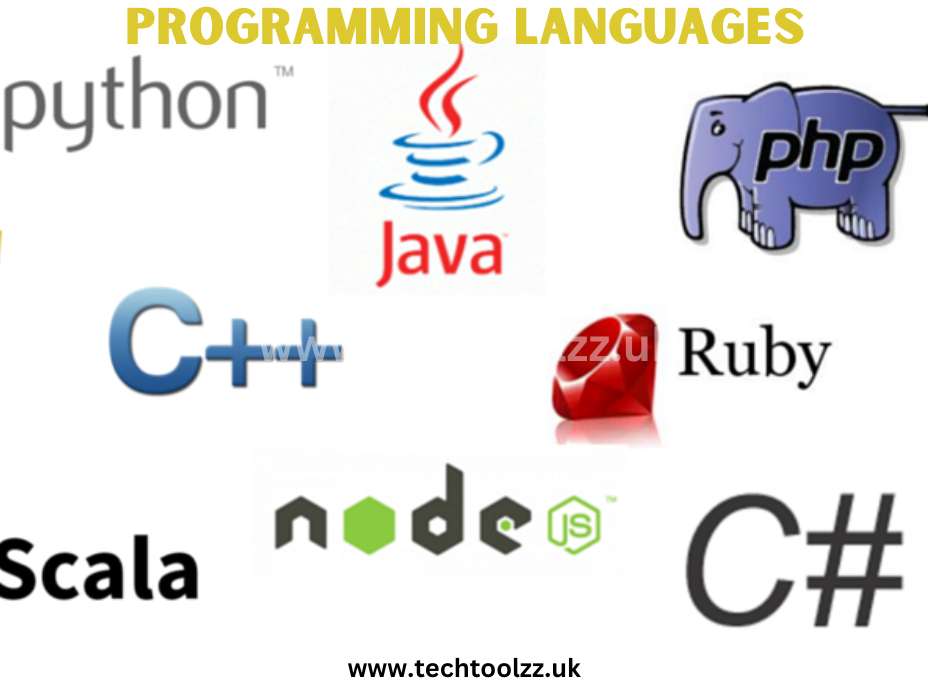Programming Languages
Welcome to the interesting universe of programming dialects! Whether you are a carefully prepared designer or simply dunking your toes into the coding waters, understanding different programming dialects is fundamental in the present tech-driven time. From making sites to creating portable applications and, Programming Languages surprisingly, controlling robots, programming dialects act as the foundation of our computerized universe.
In this blog entry, we will investigate the assorted scene of programming dialects, their prominence and request on the lookout, and give bits of knowledge on the most proficient method to pick the right language for your undertakings. Programming Languages, So snatch your virtual pen and how about we jump into this enthralling excursion through code!
Kinds of Programming Languages
Programming dialects can be characterized into a few kinds in view of their motivation and usefulness. Each type has its own one-of-a-kind highlights and benefits, taking special care of various programming needs.
One normal sort is the procedural programming language, which centers around a grouping of guidelines that are executed consistently. This type incorporates famous dialects like C and Pascal. Procedural dialects are known for their productivity in dealing with complex numerical calculations.
Another sort is object-situated programming (OOP) language, like Java and Python. OOP permits developers to sort out code into reusable articles with characterized properties and ways of behaving. It advances particularity, Programming Languages, making it more straightforward to keep up with and update applications over the long run.
Utilitarian programming dialects like Haskell and Drawl adopt an alternate strategy by underlining the assessment of numerical capabilities instead of changing state or information transformation. They give succinct punctuation to communicating complex tasks.
Prearranging dialects like JavaScript and Ruby are intended to be not difficult to use with negligible arrangement necessities. They succeed at robotizing assignments or adding intuitiveness to sites.
Space explicit dialects (DSLs) are custom-fitted for explicit businesses or applications, Programming Languages, like SQL for information base administration or MATLAB for logical figuring.
Each kind of programming language has its assets and shortcomings relying upon the job that needs to be done. Picking the right language requires considering elements, for example, project necessities, local area support, expectation to learn and adapt, Programming Languages, execution necessities, and individual inclination.
The Prevalence and Interest for Programming Dialects
Programming dialects have turned into a necessary piece of our cutting edge world, driving advancement and fueling the computerized age. The interest for talented software engineers is continually on the ascent, with organizations across all enterprises looking for people who have capability in different programming dialects.
One of the elements adding to the prominence of programming dialects is their flexibility. Different programming dialects take special care of various necessities and purposes, permitting designers to make a great many applications, from web improvement to portable applications and, surprisingly, man-made brainpower.
One more purpose for their notoriety is that programming dialects empower mechanization and proficiency. They furnish designers with apparatuses and systems that improve on complex undertakings, making it simpler to fabricate strong programming arrangements. As innovation keeps on progressing at a quick speed, there will continuously be a requirement for software engineers who can adjust and learn new dialects.

Besides, certain programming dialects have acquired prevalence because of their solid networks and broad emotionally supportive networks. These people group offer assets like gatherings, online instructional exercises, documentation, and libraries that work with learning and cooperation among engineers.
Moreover, the interest for explicit programming dialects can differ contingent upon market patterns. For instance, JavaScript has seen a flood popular with the ascent of front-end web improvement structures like React.js or Angular.js. Comparatively Python’s effortlessness has made it progressively well known in fields like information science or AI.
Top Programming Dialects in The present Market
In the present quickly developing tech industry, programming dialects assume a pivotal part in driving development and improvement. With various programming dialects accessible, picking the right one for your needs can overpower. Be that as it may, certain dialects have stuck out and acquired colossal notoriety as of late.
One of the top programming dialects ruling the market is Python. Known for its effortlessness and clarity, Python has turned into a #1 among designers for web improvement, information examination, man-made reasoning (simulated intelligence), and AI projects. Its broad libraries and structures make it profoundly flexible.
Another famous language is JavaScript. As the foundation of web improvement, JavaScript empowers dynamic and intelligent sites with its capacity to consistently control web components. It additionally controls different front-end structures like React.js and Angular.js.
Java keeps on leftover applicable because of its cross-stage similarity and adaptability. Broadly utilized in big business level applications, Java offers vigorous security highlights and remarkable execution.
For versatile application improvement, Quick has arisen as the favored decision among iOS designers. With its succinct punctuation and solid sort deduction framework,
Quick makes application improvement quicker while guaranteeing code security.
C++ stays a stalwart language that succeeds in frameworks programming like working frameworks or implanted frameworks because of its productive memory the executives capacities.
Rust is building up momentum as a protected option for low-level framework programming with worked in memory security highlights without forfeiting execution.
Variables to Consider while Picking a Programming Language
With regards to picking a programming language, there are a few factors that engineers need to consider. Perhaps the earliest thing to contemplate is the motivation behind your undertaking. Is it true that you are building a portable application? Fostering a site? Making a computerized reasoning framework? Different programming dialects are more qualified for various kinds of ventures.
Another significant variable is your degree of involvement and knowledge of specific dialects. In the event that you’re new to coding, it very well may be shrewd to begin with a fledgling cordial language like Python or JavaScript. Then again, to chip away at low-level frameworks or installed gadgets, C++ or Rust may worth investigate.
Think about additionally the accessibility of assets and backing for every language. Is there a huge local area around it? Are there broad documentation and instructional exercises accessible on the web? Having the option to take advantage of a strong local area can extraordinarily improve your way of learning and investigating skills.
Besides, consider execution contemplations. A few dialects are known for their speed and productivity, while others might forfeit speed for usability or adaptability. Contingent upon your particular requirements, this could be a significant game changer.
The Fate of Programming Dialects
As innovation keeps on progressing at an extraordinary rate, the fate of programming dialects looks encouraging. Engineers are continually looking for additional proficient and strong ways of composing code, bringing about the rise of new programming dialects that take care of explicit requirements.
One pattern that is supposed to shape the fate of programming dialects is the ascent of area explicit dialects (DSLs). These dialects are intended for explicit spaces or ventures, permitting designers to compose code that is customized to their specific necessities. This approach further develops efficiency as well as prompts cleaner and more viable code.
Another viewpoint that will impact the fate of programming dialects is computerized reasoning (artificial intelligence) and AI (ML). With progressions in artificial intelligence and ML advances, we can expect programming dialects that are fit for understanding regular language orders and naturally creating code in light of undeniable level directions. This would significantly work on programming advancement processes and empower even non-software engineers to make complex applications.
